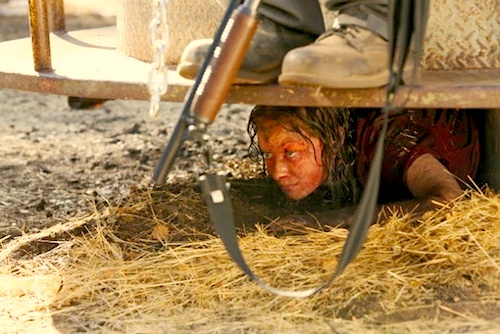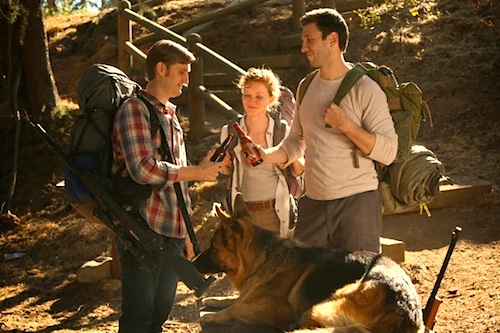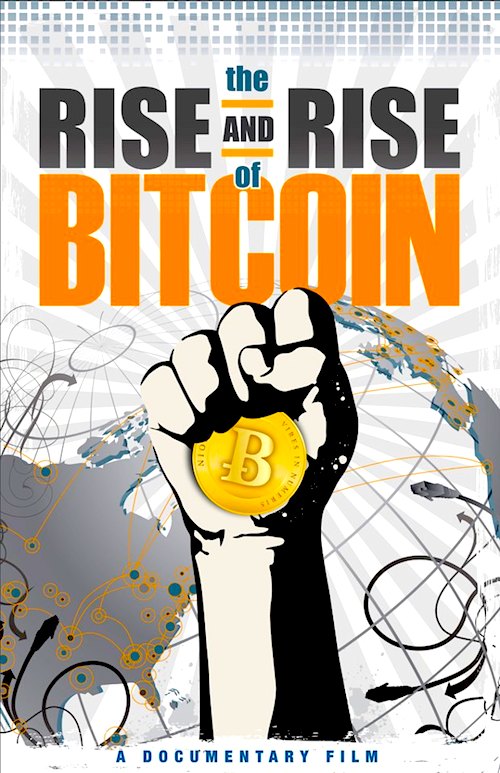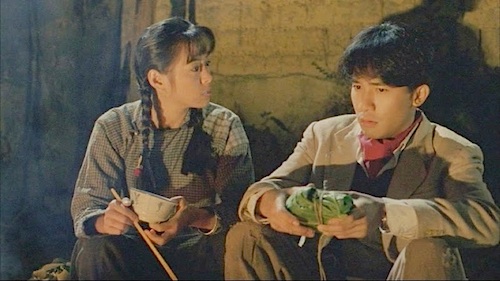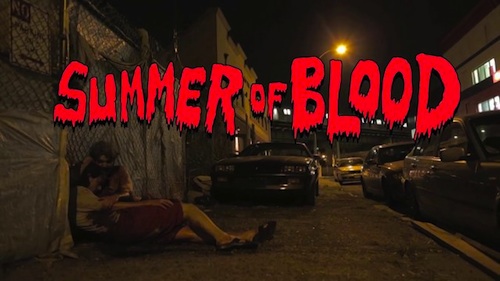 By Joe Bendel. Honestly, Bushwick hipsters are horrifying enough. Adding a few vampires is almost redundant. They are all just life-sucking parasites. At least that is the impression one gets from Onur Tukel’s desperately unfunny comedy, Summer of Blood, which inflicts its pain on the 2014 Tribeca Film Festival.
By Joe Bendel. Honestly, Bushwick hipsters are horrifying enough. Adding a few vampires is almost redundant. They are all just life-sucking parasites. At least that is the impression one gets from Onur Tukel’s desperately unfunny comedy, Summer of Blood, which inflicts its pain on the 2014 Tribeca Film Festival.
Erik Sparrow is a nauseatingly self-absorbed slacker who thinks the world owes him a living. After rejecting his career-oriented girlfriend’s marriage proposal out of commitment phobia, he discovers most single women are put off by his schlubby underachiever shtick. This so wounds his entitled ego, he willingly submits to a vampire, who turns him rather than killing him. Suddenly, Sparrow is doing better with the ladies, but he also has that undead need to feed.
Apparently out of a misguided sense of BKLN solidarity, some critics have likened Blood to the vastly superior work of Woody Allen and Larry David, but those comparisons are way off the mark. At their best, Allen, David, and Seinfeld knowingly undercut their neurotic pretensions, but Tukel celebrates Sparrow’s narcissism, elevating it to heroic levels. That would be fine, if the comedy clicked to any extent. Take for instance his favorite punchline—“is this because I’m Turkish”—and imagine how well it works with multiple repetitions.
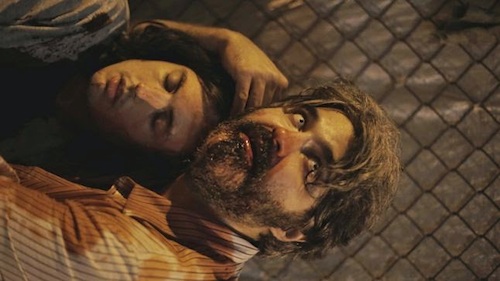
Similarly, about the second or third time Blood shows us Sparrow flying solo in a men’s room stall we start to realize just how much the film hates its potential audience. In fact, the smarmy vibe is well matched by the film’s dingy look, giving the impression it was shot with split pea soup smeared on the digital lens. The stilted performances do not help either, unless you dig the in-joke of indie directors such as Johnathan Coauette popping up in small cameos.
The last press screening I attended that was as stony silent as the Blood p&i was for Claude Lanzmann’s The Last of the Unjust. Obviously, the two films bear no comparison. The point is nobody could even generate a chuckle for the Brooklyn vampires. A thoroughly unpleasant failure by any rational aesthetic standard, Summer of Blood is absolutely not recommended when it screens again tomorrow (4/26) during this year’s Tribeca Film Festival. If you already have a ticket, scalp it in front of the theater. Instead, try to catch Slaying the Badger, Battered Bastards of Baseball, or Black Coal, Thin Ice, three great Tribeca selections also showing on Saturday.
LFM GRADE: F
Posted on April 25th, 2014 at 11:20pm.


